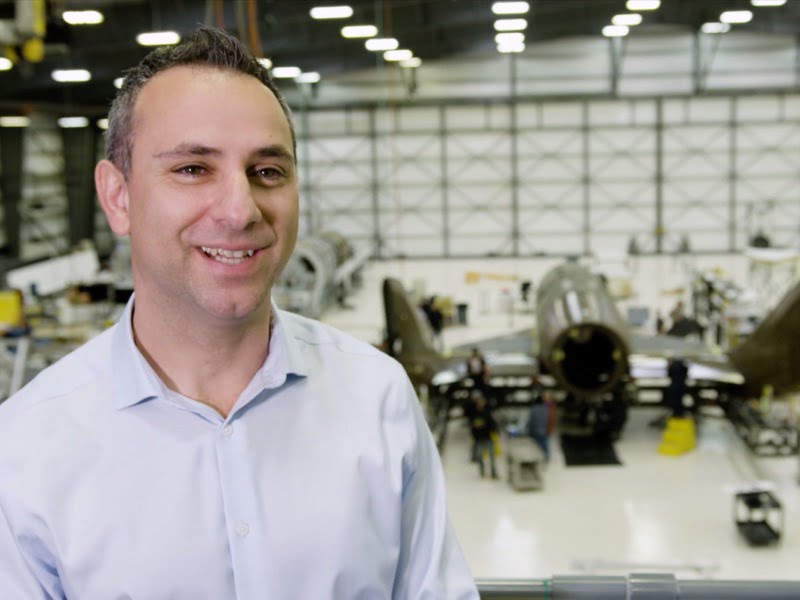As momentum builds in Australia’s space industry, local and global space leaders say more growth will hinge on the alliances the country builds with international heavyweights and taking ownership of certain capabilities.
Leaders from NASA and the New Zealand Space Agency on Wednesday endorsed the potential of Australia’s space sector and said they welcomed furthering bilateral and multilateral space partnerships.

Former Virgin Galactic chief Enrico Palermo this year returned to Australia to take charge of its space agency at a time when it faced criticism for not keeping up with the budding industry.
“The vector for momentum is headed in the right direction,” Mr Palermo said on Wednesday at the Australian Space Forum in Adelaide, adding that it was clear there was an appetite around the world for Australia’s space technology and services.
“What I’ve learned in my bilaterals to date, and multilateral discussions, is the world wants to work with Australia. And we need to work out how we can contribute to international missions, more effectively and more substantively into the future.”
The forum is being held on the same day as Australia’s first major commercial rocket is scheduled to launch, and after a Defence satellite successfully separated in two on Friday as part of its “most complex” cube satellite mission. It also follows news that a new university spin-out announced plans to commercialise its own space intellectual property.
“Momentum is building in our sector and it’s incredibly exciting,” Mr Palermo said.
“We of course have a lot more to do, we need to capitalise on the momentum. We can’t rest on our laurels.”
The Australian Space Agency head said it was critical to build on these “formative” moments for Australia to become a “proud spacefaring nation”, and the country could not do it alone.
The US, which represents the world’s largest space economy at more than $A240 billion annually, will be key to Australia’s success, Mr Palermo said.
“We all know the US represents the largest space economy in the world and, as a result, it offers us the best opportunities for trade and investment. Most recently, what we’ve looked into [is] consideration of how can we strengthen that – how can we allow our companies to coordinate, how can we allow us technologies into the country?”
The Australian government is in the early stages of negotiating a Technology Safeguards Agreement (TSA) with the US. The treaty would remove some barriers to the countries and their private companies working together on space technology, and could see significantly more investment flow into Australia.
Australia is still in preliminary stages of negotiations with the US, which already has TSAs in place with several other countries, including New Zealand, the UK and Brazil.
“The negotiations with the US are expected to strengthen investment for both [countries’] space industries by enabling the transfer of technologies and enhancing partnership opportunities, not just for our agencies but for our great companies in the sector,” Mr Palermo said.
The agency is also partnering with NASA in a $150 million Moon to Mars grant program to help Australian companies access global space supply chains involved in the US led mission.
NASA’s deputy administrator Colonel Pam Melroy endorsed Australia’s space capabilities in her address to the Space Forum.
She said Australia has played a vital role in US space missions, with a partnership stretching back 60 years to when NASA relied on “The Dish” in Parkes to receive live television images of the Apollo 11 Moon landing.
The US will rely on Australia and around 130 other countries to contribute to its renewed space push, including NASA’s missions to land the first woman and next man on the Moon in 2024.
Colonel Melroy said Australia’s move last year to be one of the first signatories to the Artemis Accords – shared principles for a safe and transparent space environment – had put it at the “forefront of global policy leadership”.
“As we look at this rich tapestry of capabilities that we plan to develop together, I look forward to partnering with Australia to see which parts of it, which elements, Australia wants to take complete ownership of.
“I look forward to seeing an Australian flag on the moon in the not too distant future.”
New Zealand Space Agency Head Andrew Johnson said the country had developed a compelling offer for more advanced space nations as a launch location through a focus on non-government space missions, international collaboration and a “very nimble” policy and regulatory system.
Australian companies and Defence have launched some space missions from New Zealand and the countries have a memorandum of cooperation on space, but the partnership is still in the “earliest stages”, Mr Johnson said.
“At the moment [we’re] thinking about the sorts of themes that we might like to collaborate on,” Mr Johnson said at the Space Forum.
“So, things like space situational awareness, space traffic management, position navigation and timing, space medicine, optical and deep space communications, and of course Earth observation.
“We’re at the earliest stages of that partnership but we hope that will be a really fruitful one as well with our Australian friends.”
Do you know more? Contact James Riley via Email.

